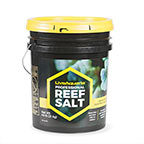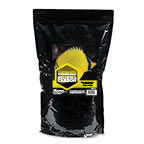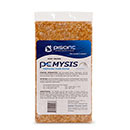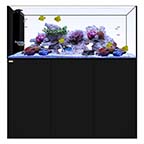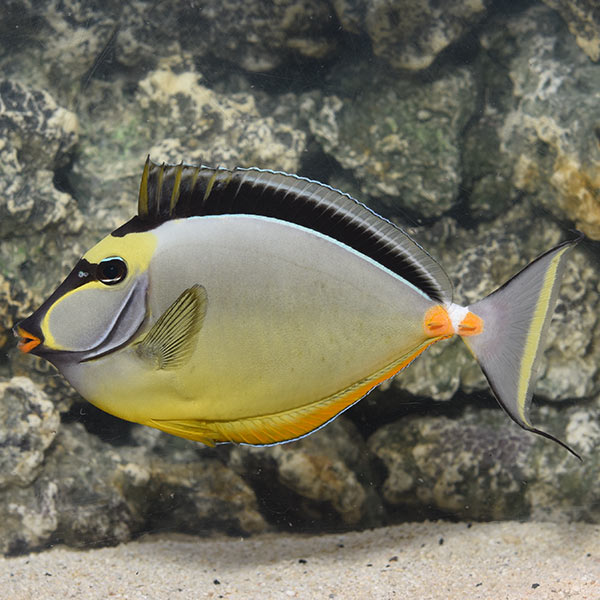
Additional locales and sizes may be available!
Additional locales and sizes may be available! Email me when availableQuick Stats
What do these Quick Stats mean? Click here for more information
What do these Quick Stats mean? Click here for more information
Overview
Did you know that this specimen ships from our LiveAquaria® Wisconsin Facility, home of our popular Diver's Den® WYSIWYG Store and our LiveAquaria® Certified Captive Grown Corals (CCGC)? What that means is that you can rest assured knowing this specimen received the highest level of care from our experienced and professional LiveAquaria® staff!
The Naso Tang, also known as the Orangespine Unicornfish, darkens with maturity. Naso Tangs from Hawaii are often more brightly colored than those found in other areas. As a juvenile, the Naso Tang from Hawaii is dark gray with a blue stripe following along the dorsal fin and an orange stripe in the anal fin. When matured, the body takes on a reddish-brown tone and the juvenile striping is supplemented with additional color. The tail takes on a lyre shape with a yellow vertical bar towards the back. Two orange patches appear at the peduncle spines near the tail. The face undergoes the largest change. A thin, black mask forms between the eyes and mouth. The mask is outlined with bright yellow and the lips develop a reddish-orange color.A 180 gallon or larger aquarium is necessary to provide plenty of swimming room, and places to hide, with a tight-fitting lid provided to prevent jumping to escape. It is aggressive towards other tangs, but peaceful with other fish in the tank.
Although Tangs will eat meaty foods along with the other fish in the aquarium, it is important that they are offered plenty of marine based seaweed and algae. This will strengthen their immune system, reduce aggression and improve their overall health. Offer dried seaweed tied to a rock or use a veggie clip, and feed at least 3 times per week. Sea Veggies, Seaweed Salad and Ocean Nutrition are all ideal products and are very easy to use.
Approximate Purchase Size: Small: 1" to 2"; Small/Medium: 2" to 3"; Medium: 3" to 4"; Medium/Large: 4" to 6"; Large: 6" to 8"; Extra Large: 8" to 9"



